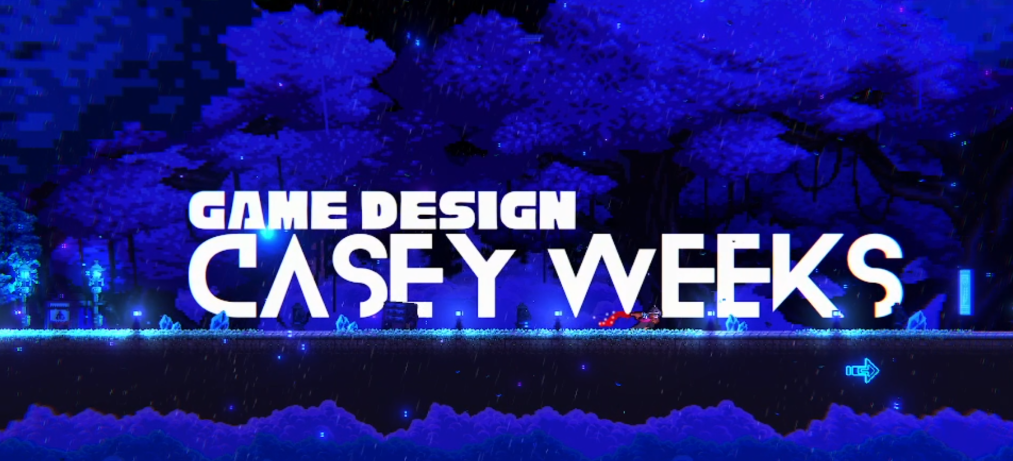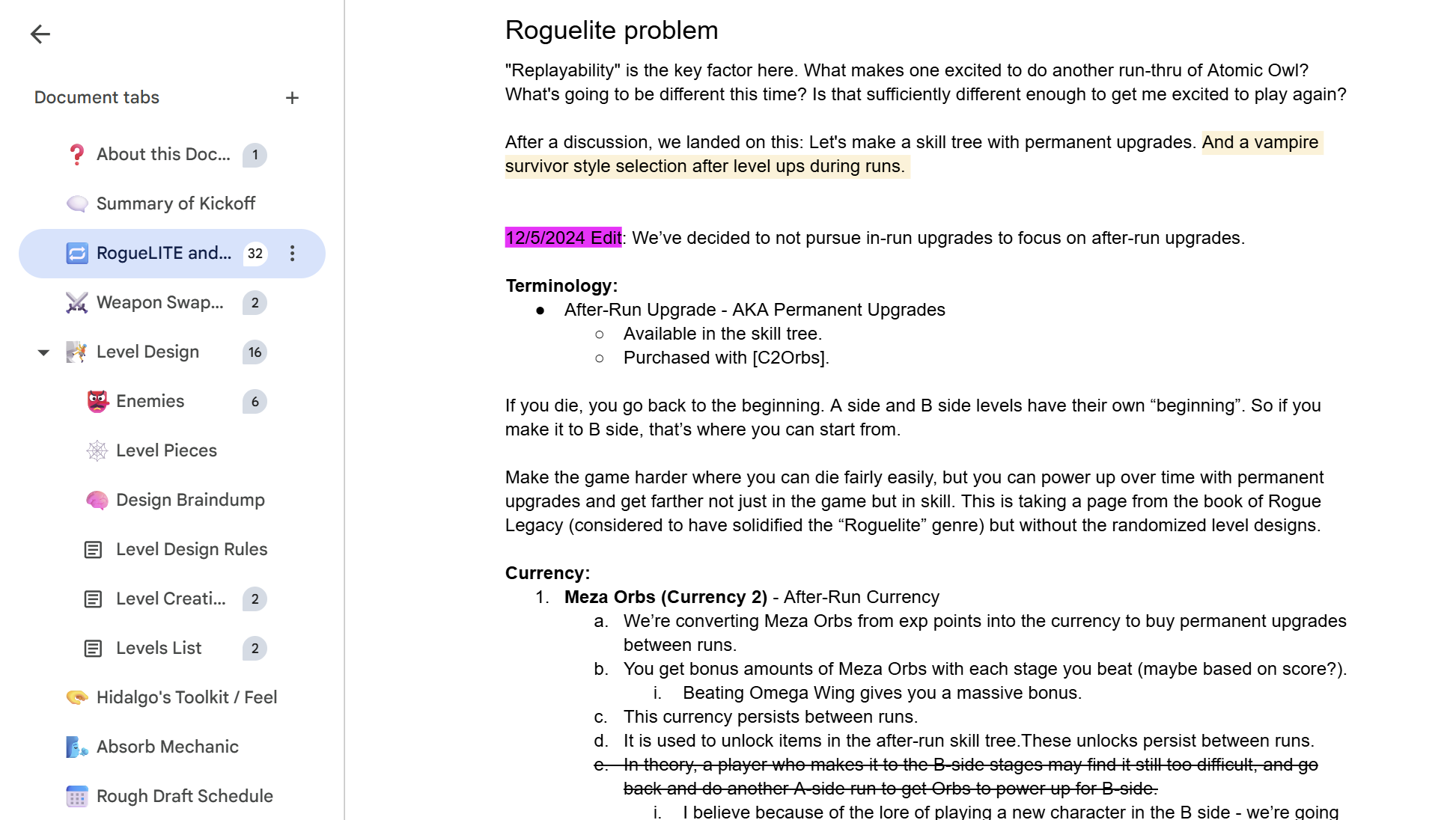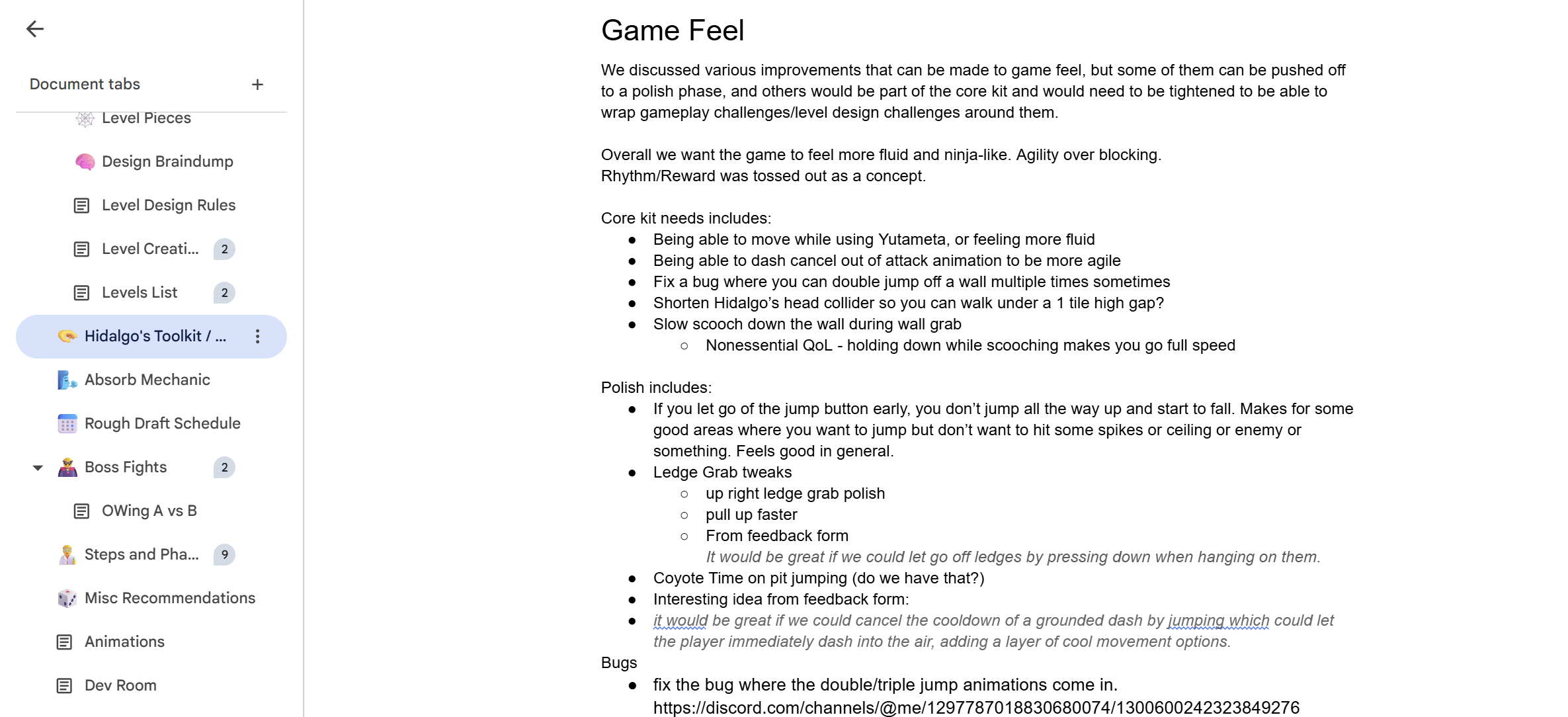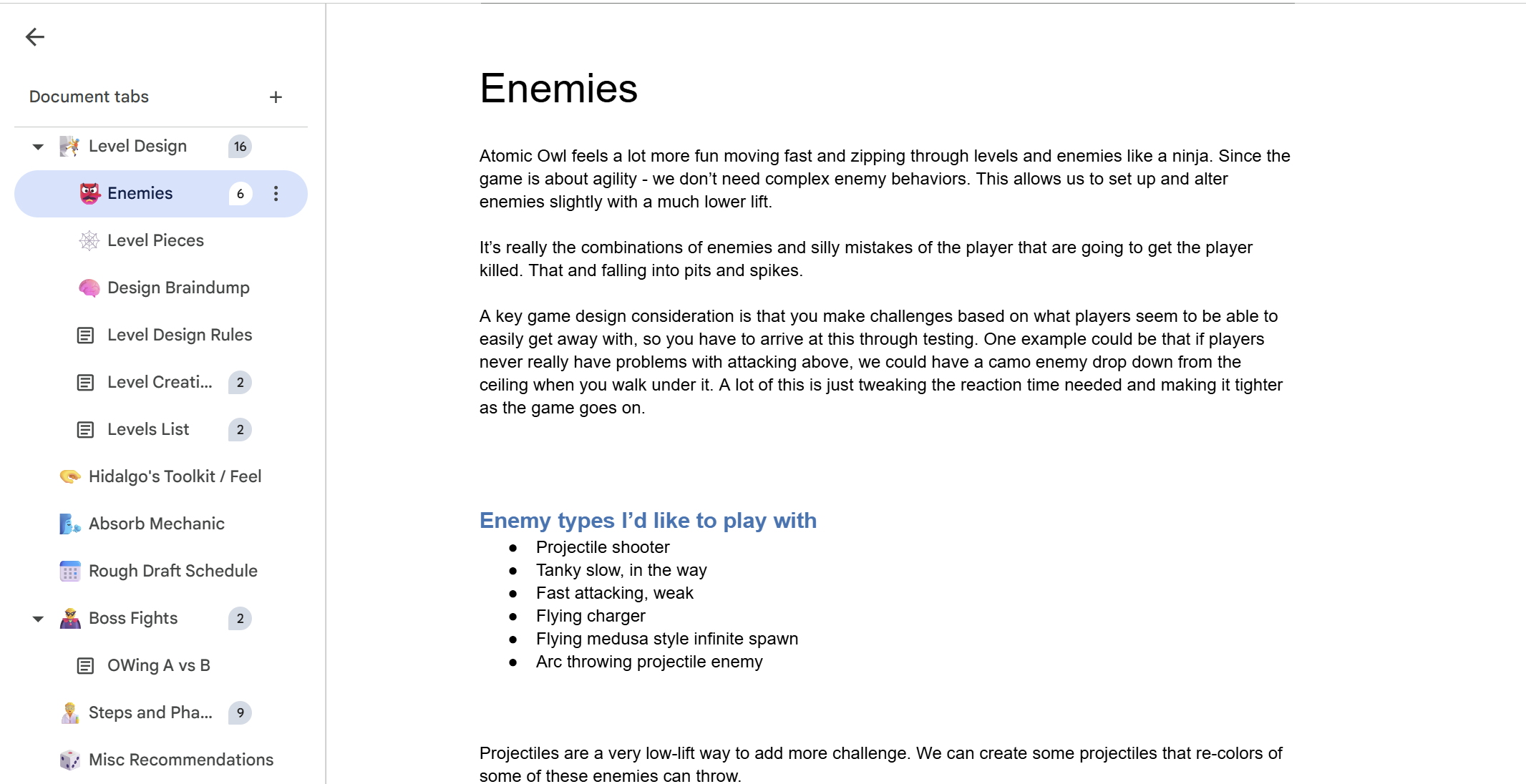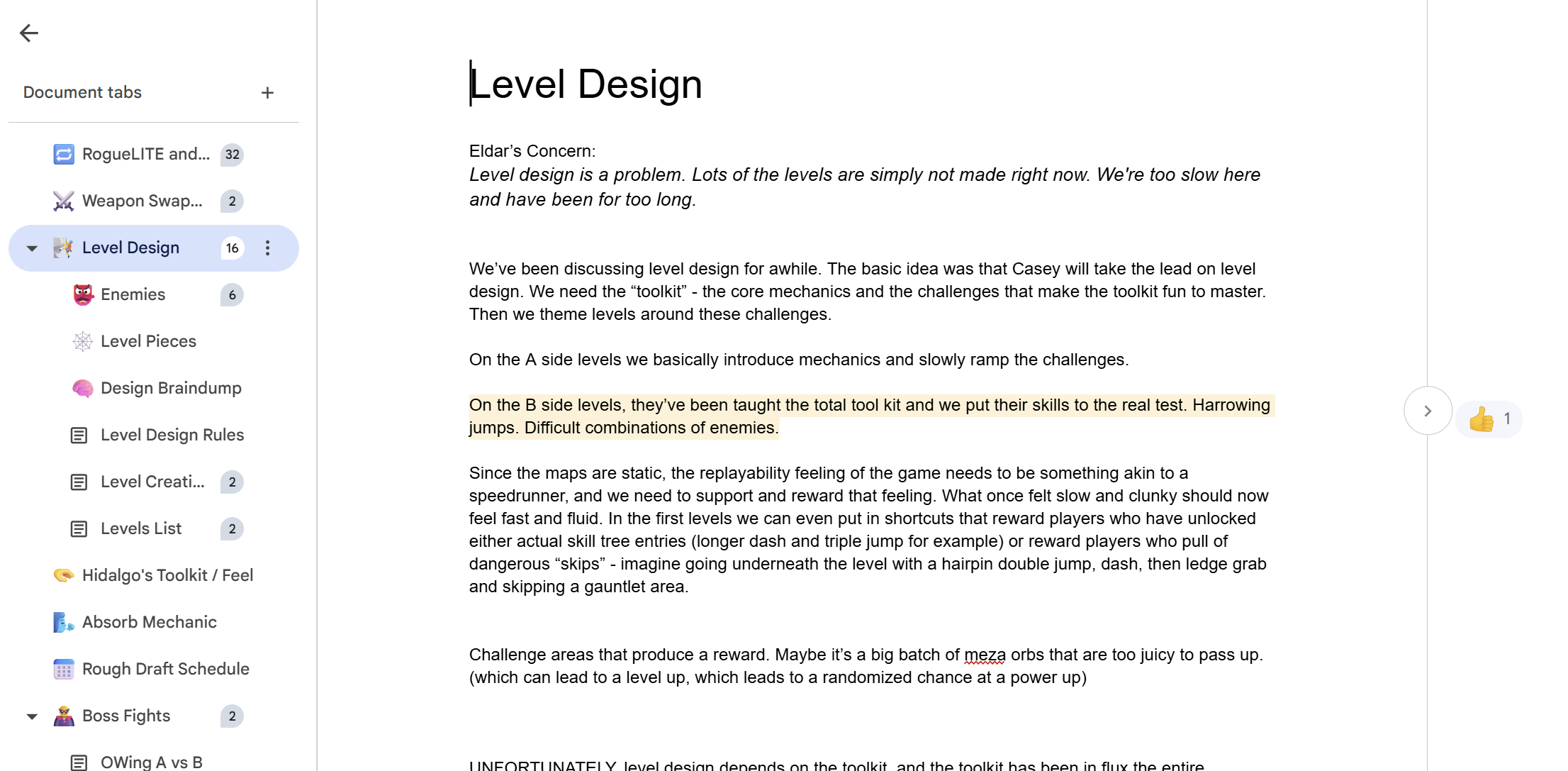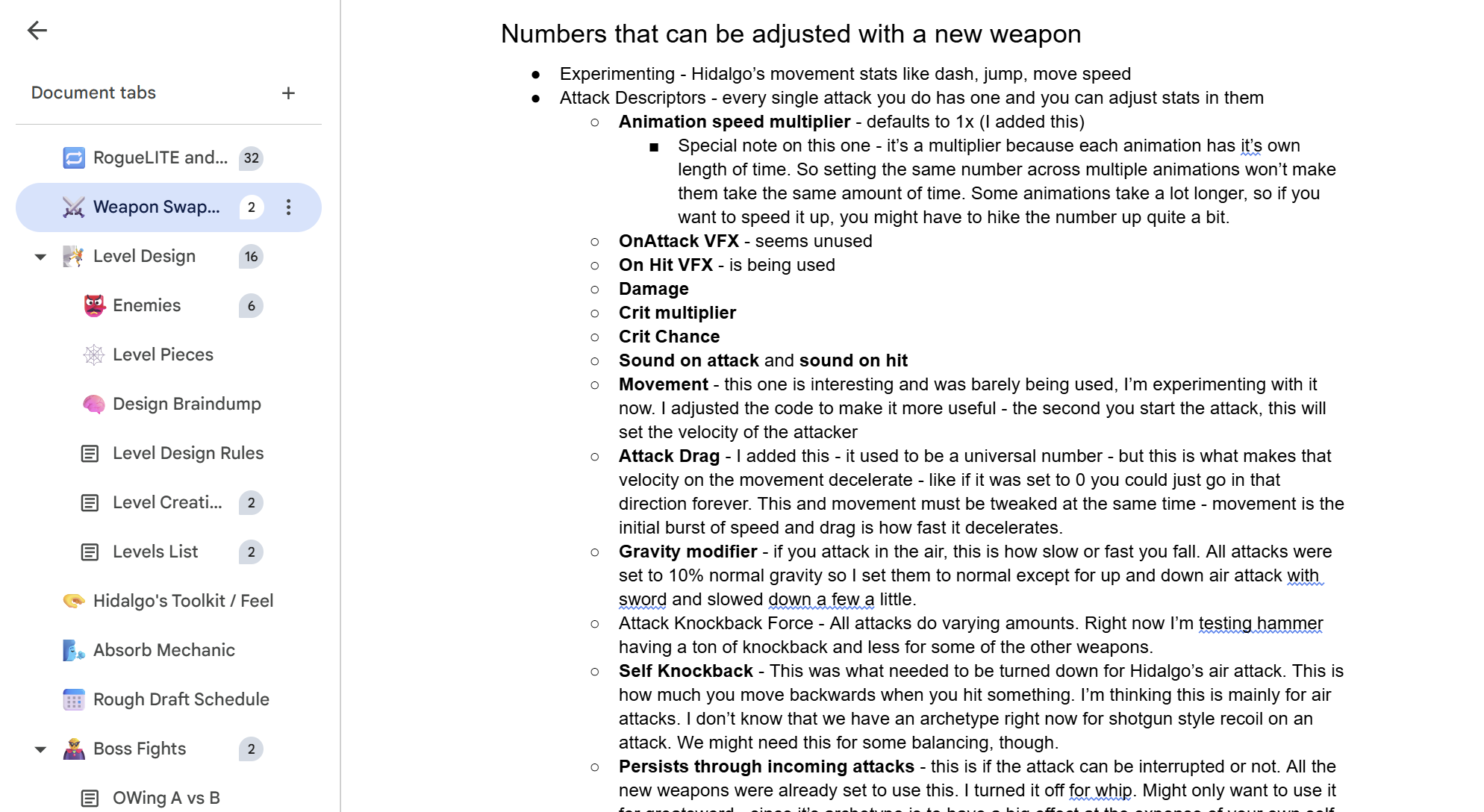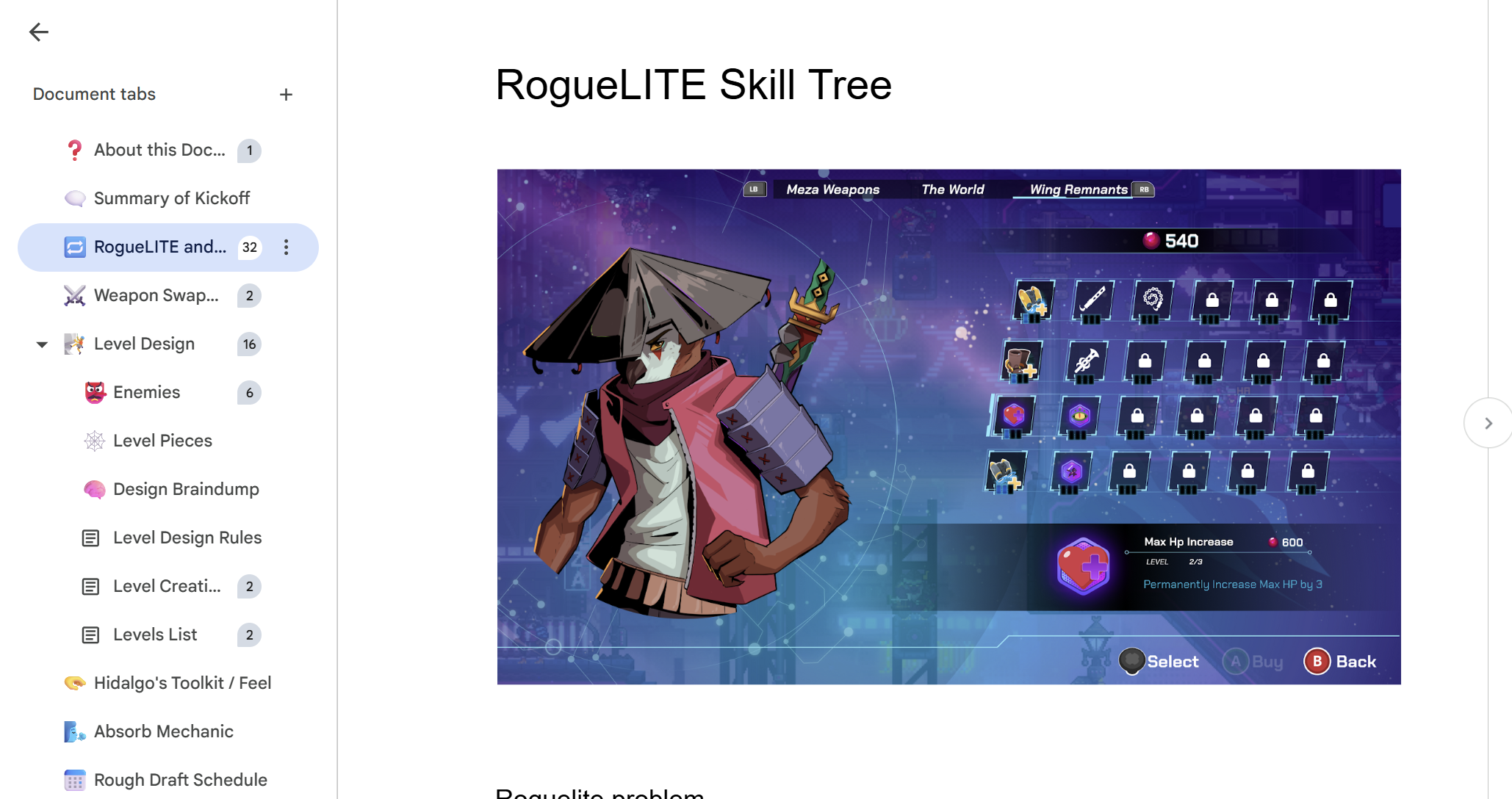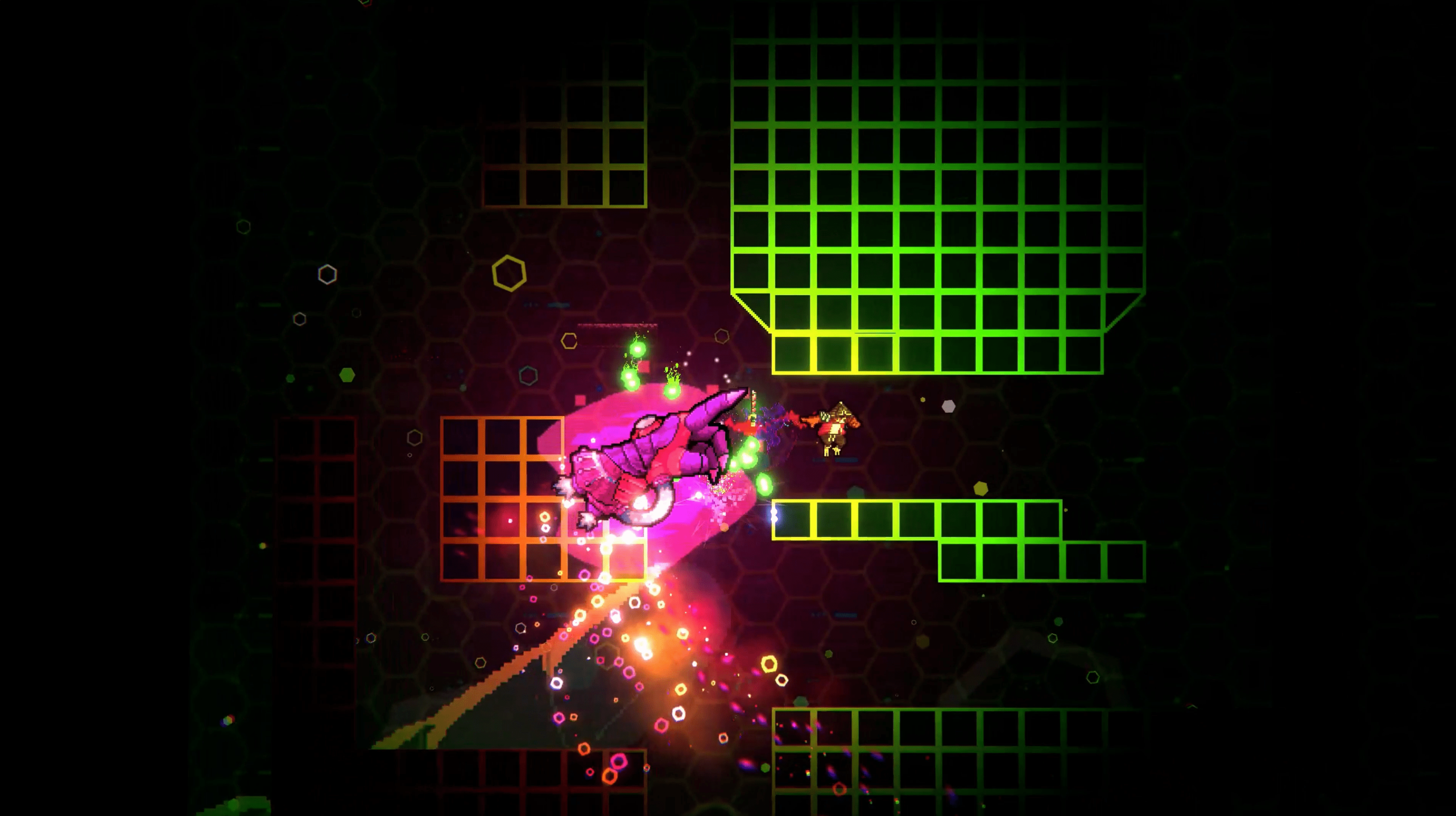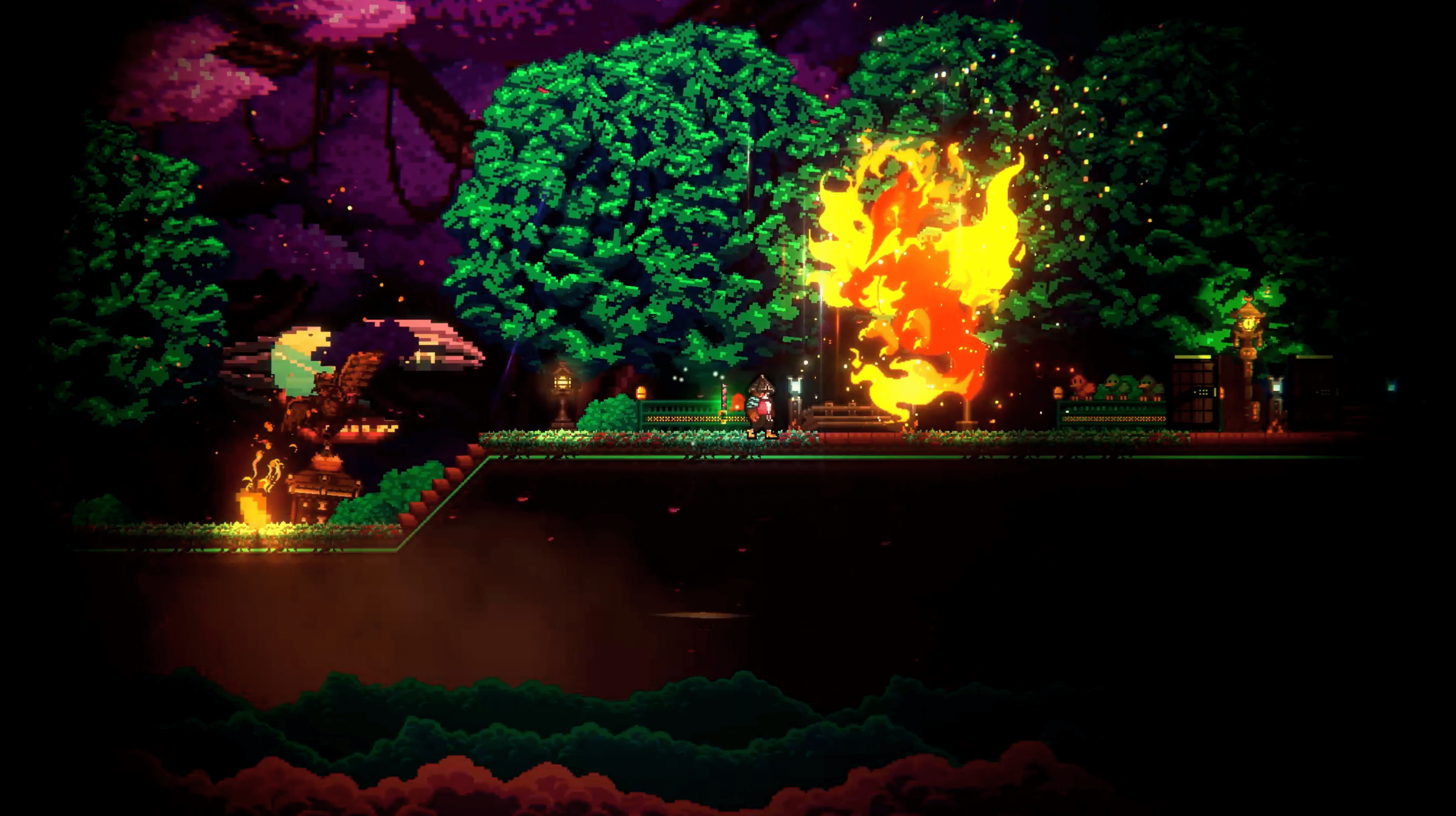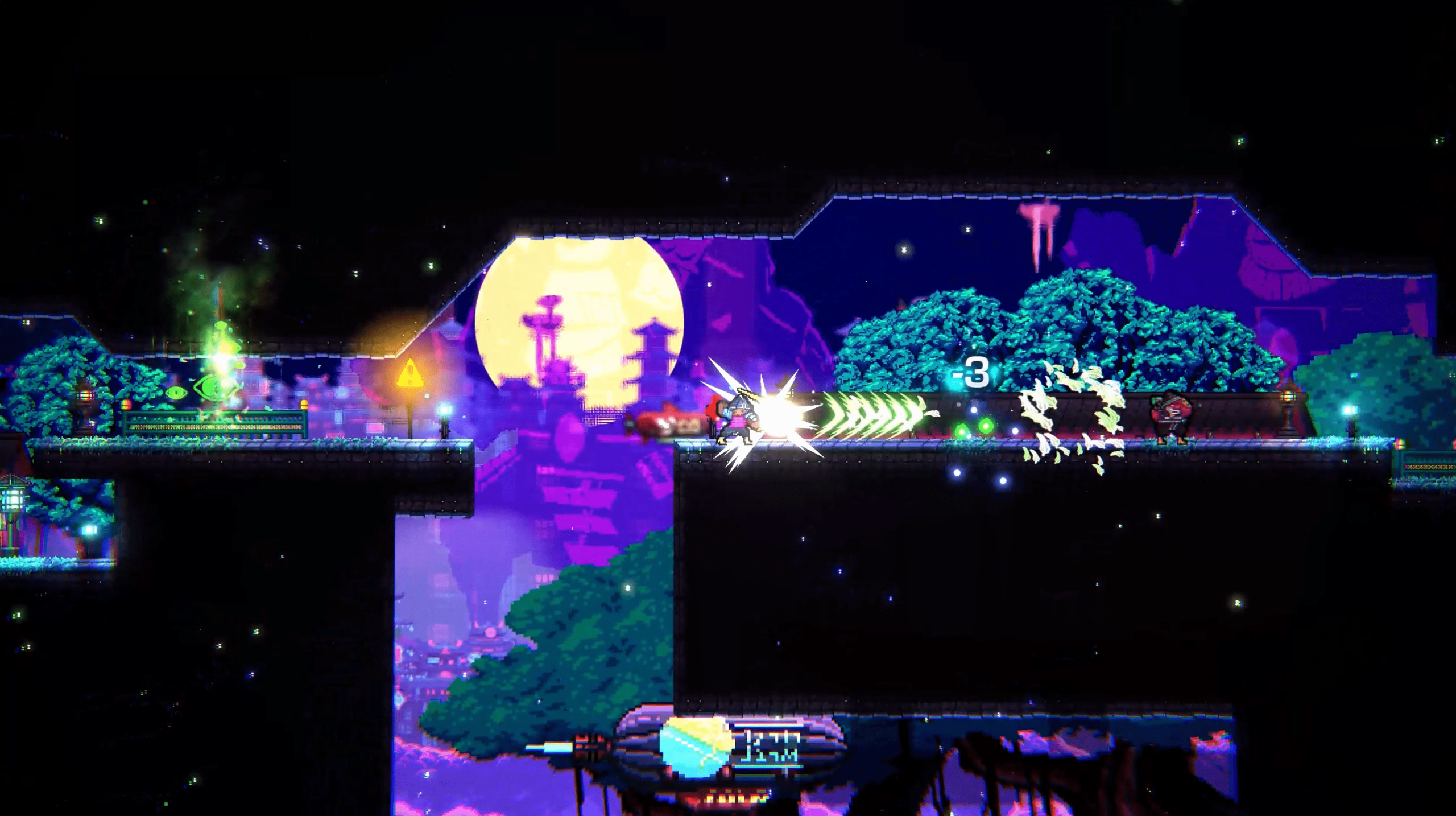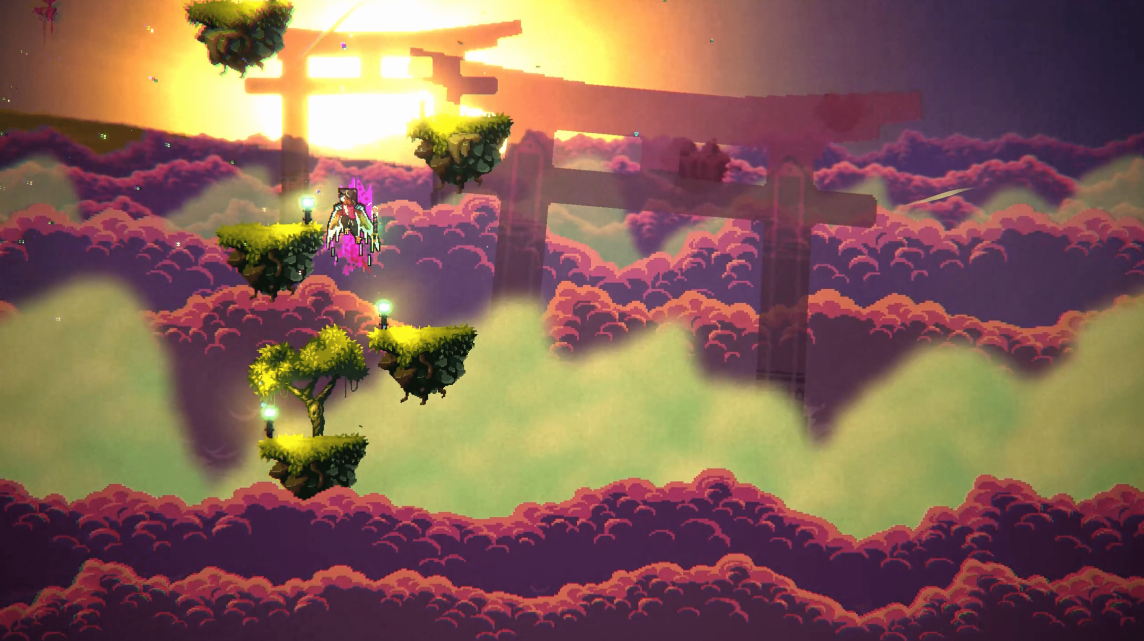Atomic Owl: Game Design for a Client with a Successful Kickstarter
Following a successful Kickstarter campaign (over $55k), Atomic Owl brought me on part-time to help bring their vision for a fast-paced 2D platformer with roguelite elements to life.
My role was to act as the bridge between design and engineering. Or, in the words of the client, I was hired to be “the one who glues all the parts of our game together,” using my expertise in Unity and C# to rapidly prototype, implement, and refine core gameplay systems.
Engine:
Unity
Contract Length:
~7.5 months
Roles
- Technical Game Designer
- Sr. Engineer
- Level Designer
Summary of Work:
- Shipped Title
- Game Feel & Polish
- Systems Design
- Rapid Prototyping
- Level Design
- Tools Development
- Programming
- Unity Consultation
- Bridging Departments
- QA & Live Ops
Project Results:
- 100,000+ Wishlists on Steam
- Demo: Best platformer at the Winter Game Awards 2024
- 8/10 scores from most reviewing outlets
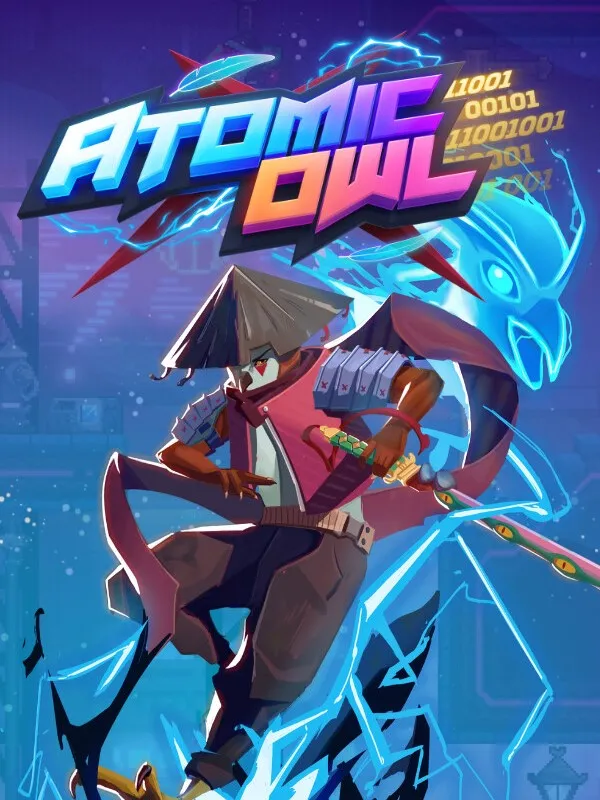
Passion and Research
As a former Castlevania: Symphony of the Night speedrunner, I have a personal relationship with what makes 2D platformers engaging. Upon joining the team, I analyzed dozens of modern and classic titles, and used those notes to inform my design decisions.
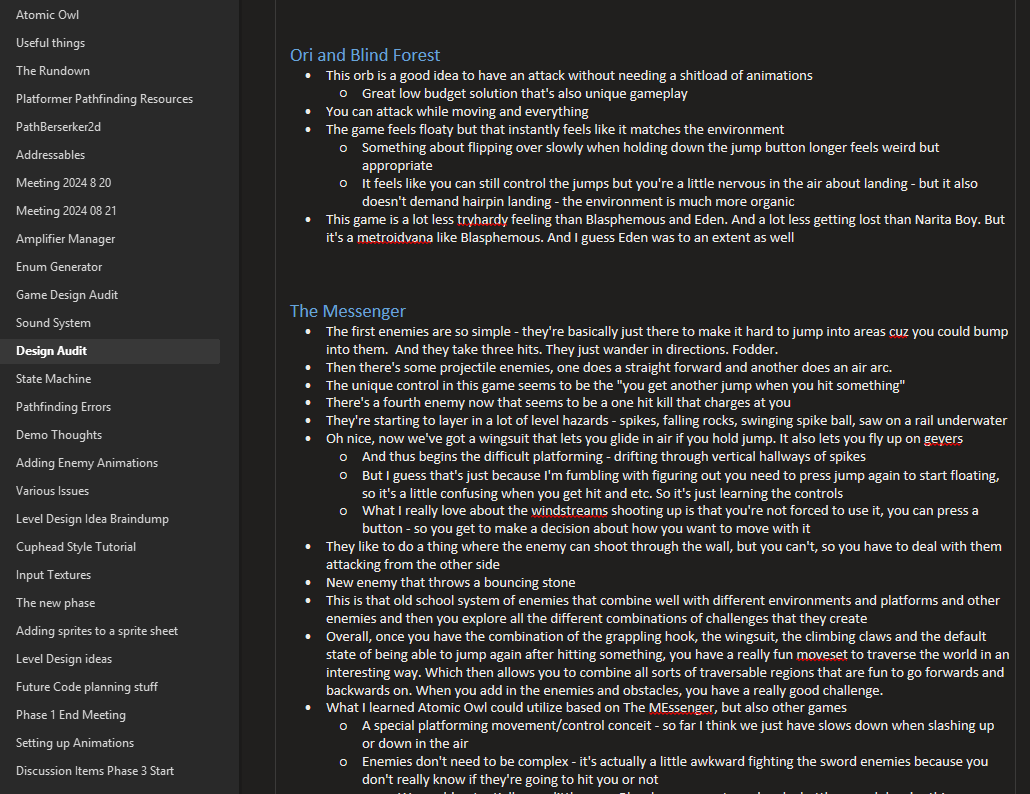
Client Feedback
“Casey brought clarity and momentum to our indie game project. I’m very lucky to have had his design-obsessed and player-centric mind on my team.”
The GDD: Gameplay Systems & Prototyping
I first prepared the demo for its Steam launch by stabilizing the build, creating a tutorial, and improving its core game feel.
Following the demo’s release, I authored a Game Design Document (GDD) in one week. I had to be clever because we had a limited time until launch. The GDD outlined a 5-month development plan to align the game with its Kickstarter vision while addressing player feedback and design issues.
The roadmap was split into distinct phases:
- 1 month for rapid prototyping new player mechanics
- 2 months to complete the level design toolkit (Alpha)
- 2 months for greyboxing levels and iteration (Beta)
Early Devroom Testing
Technical Implementation & Tools Development
I scripted gameplay features and fixed bugs in C#, submitting all changes via Pull Requests in Git. To empower less technical team members, I developed a suite of custom Unity editor tools—often supported by video tutorials—that allowed them to iterate on features such as player control, weapons, enemy behaviors, and sound without adding work to the engineering team.
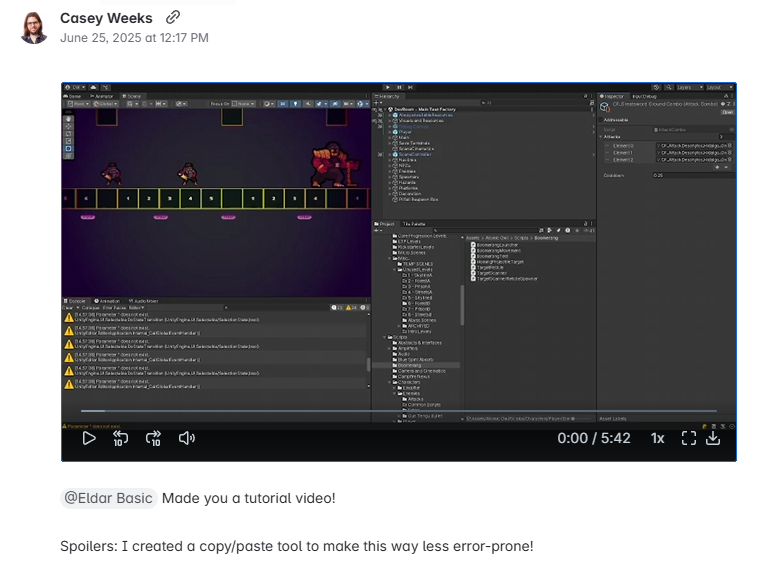
Client Feedback
“I know if I assign a ticket to Casey, it will be implemented, tested, and won’t break in the future or interfere with other systems.”
Collaboration & Documentation
With a background in UX design, I prioritized clear communication and documentation. I created detailed tickets that explained features and pointed to specific code, making it easier for the team to collaborate, test, and debug.
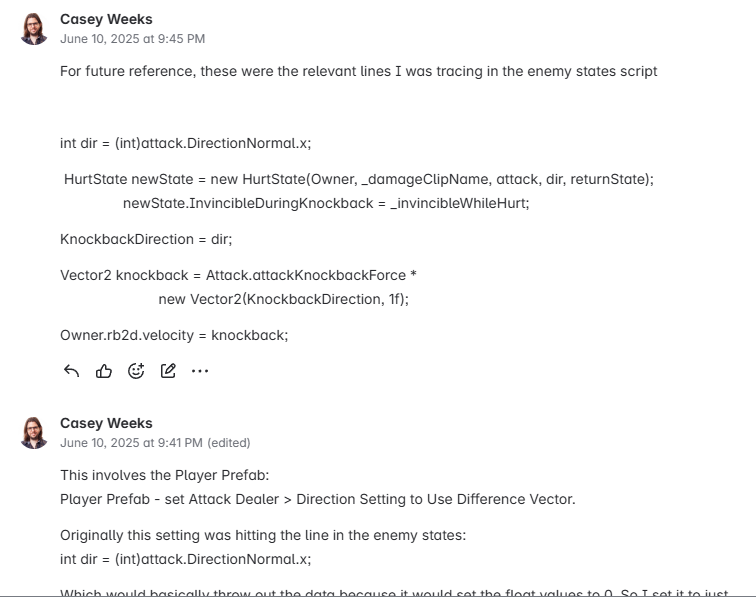
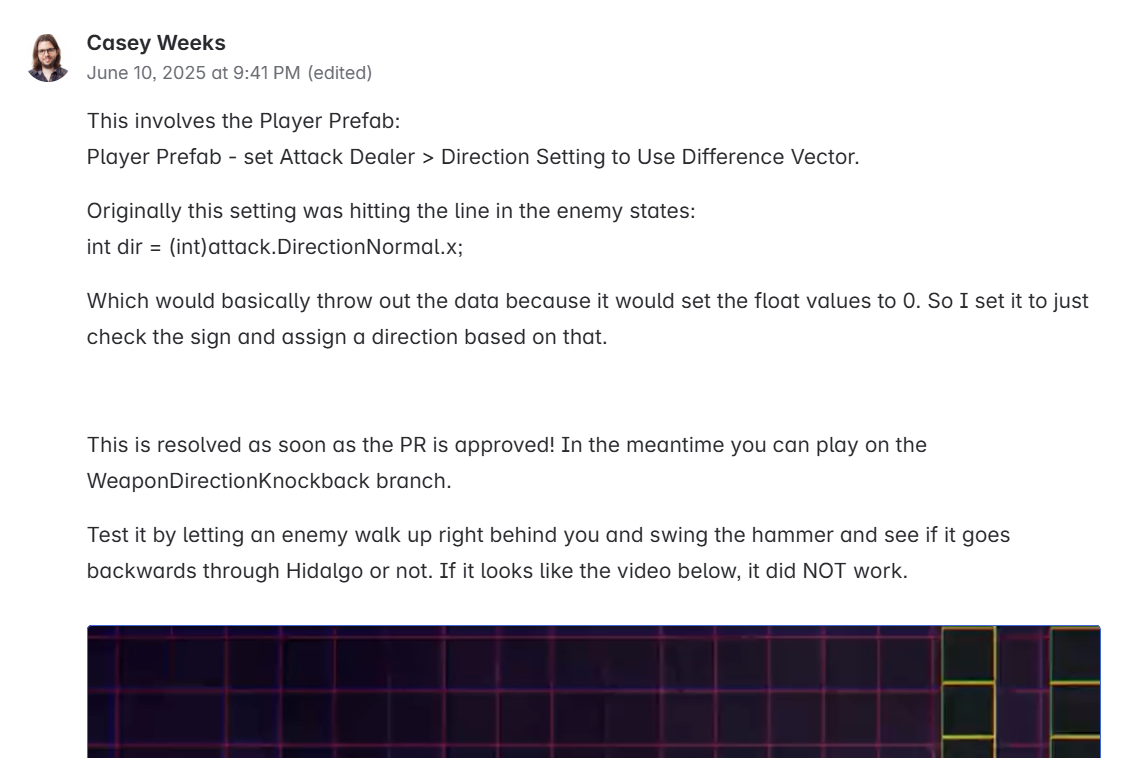
Final Launch Support
My contract concluded after I delivered the core systems and level designs. A few months later, as the team neared the launch date, I saw they needed an extra hand for the final push. I voluntarily jumped back in during the critical last week to provide intensive QA, perform crucial game design balancing, and fix last-minute bugs. Because I had the most experience releasing games, I was able to help guide the process.
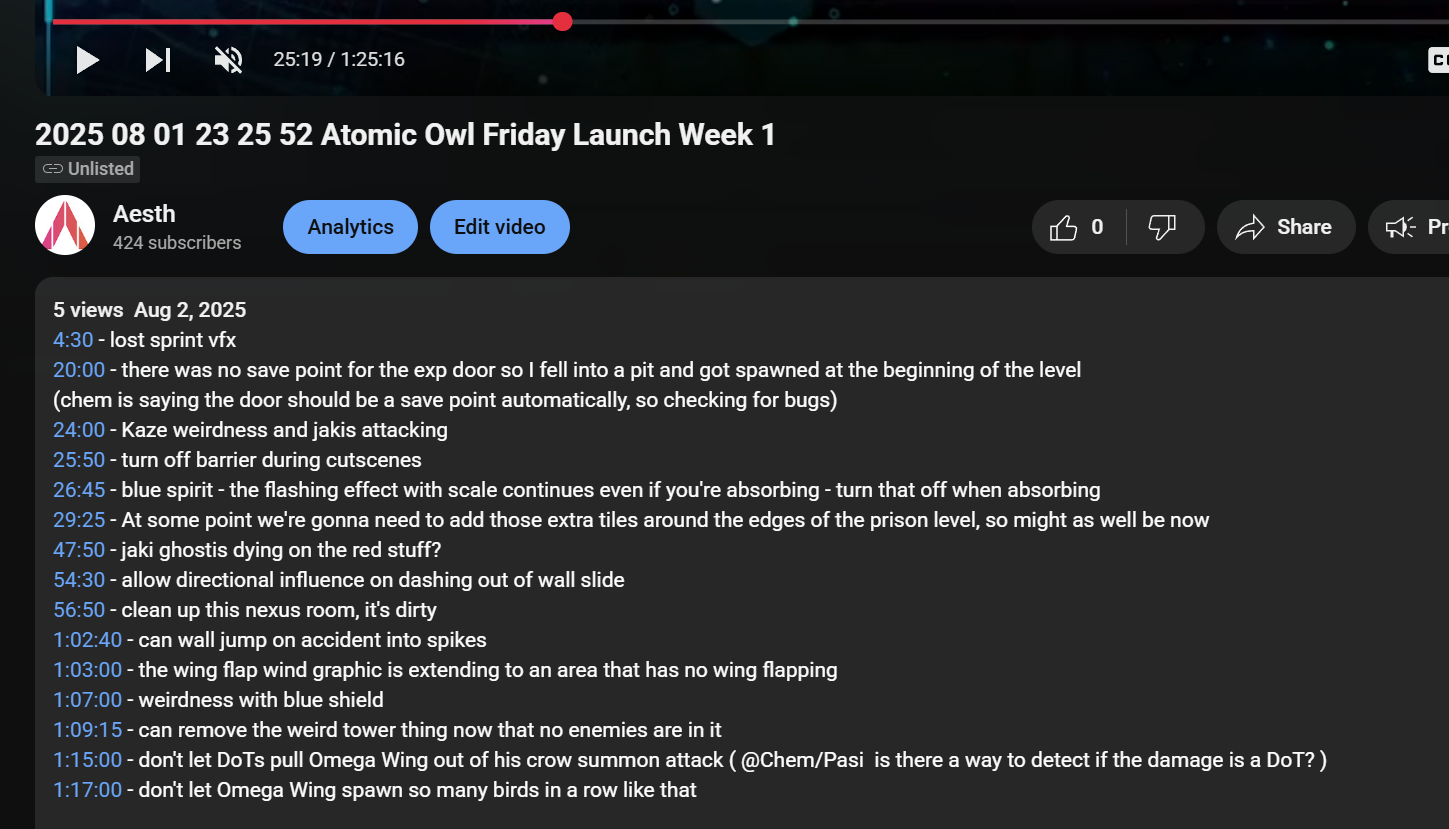
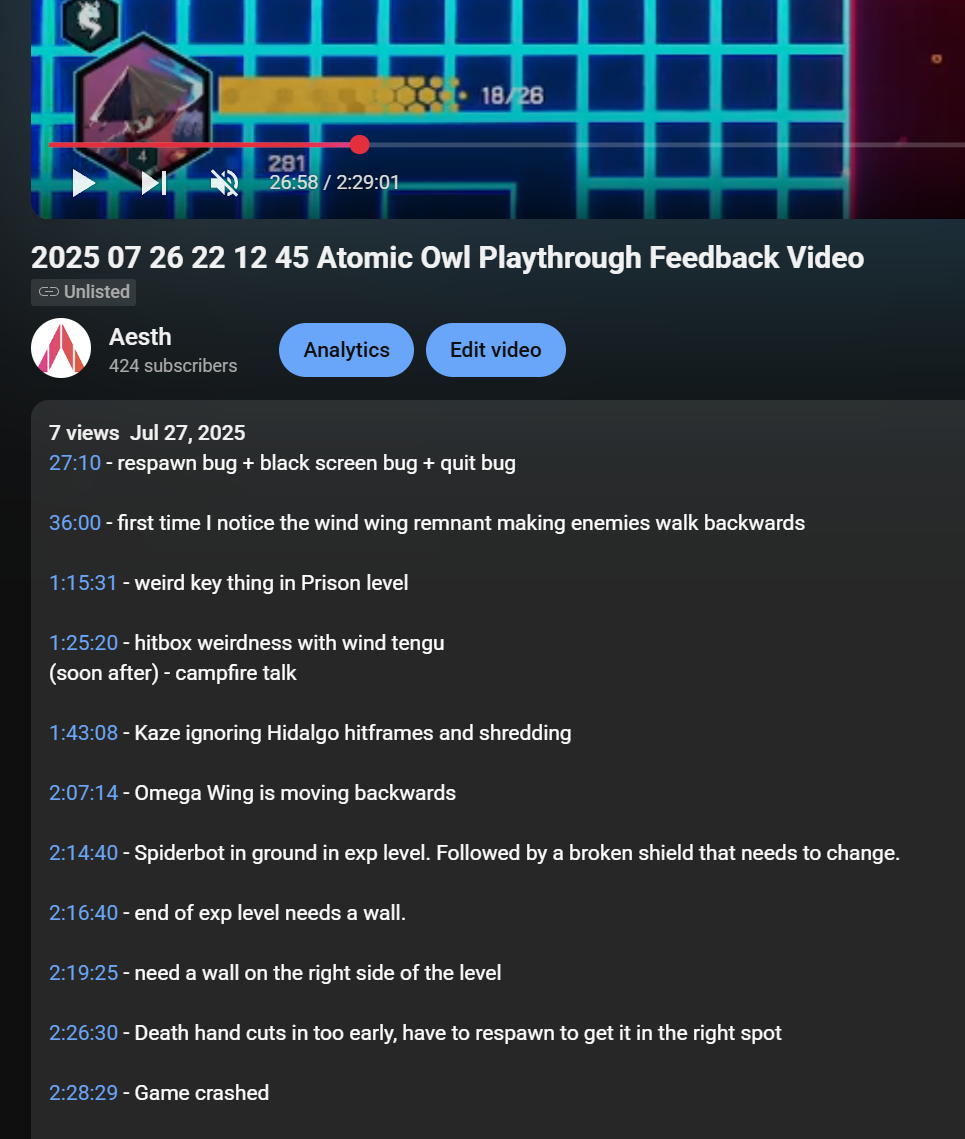
Post-Launch Polish
After the game’s release, I continued to support the team by monitoring Twitch streams for player feedback, compiling reports on user experience, and implementing additional game design polish and bug fixes based on live player data.
My UX experience told me a streamer who doesn’t know a developer is watching is where you find the best feedback.
Project Results
It was incredibly rewarding to help the Atomic Owl team ship their title on Steam. The game cultivated significant pre-launch excitement, accumulating an impressive 100,000+ wishlists. Upon release, it was met with positive critical reception, earning strong 8/10 scores from most reviewing outlets. The focused push on QA and balancing during the final week was instrumental in polishing the game to a state that reviewers praised, demonstrating the direct impact of dedicated technical design on a project’s success.
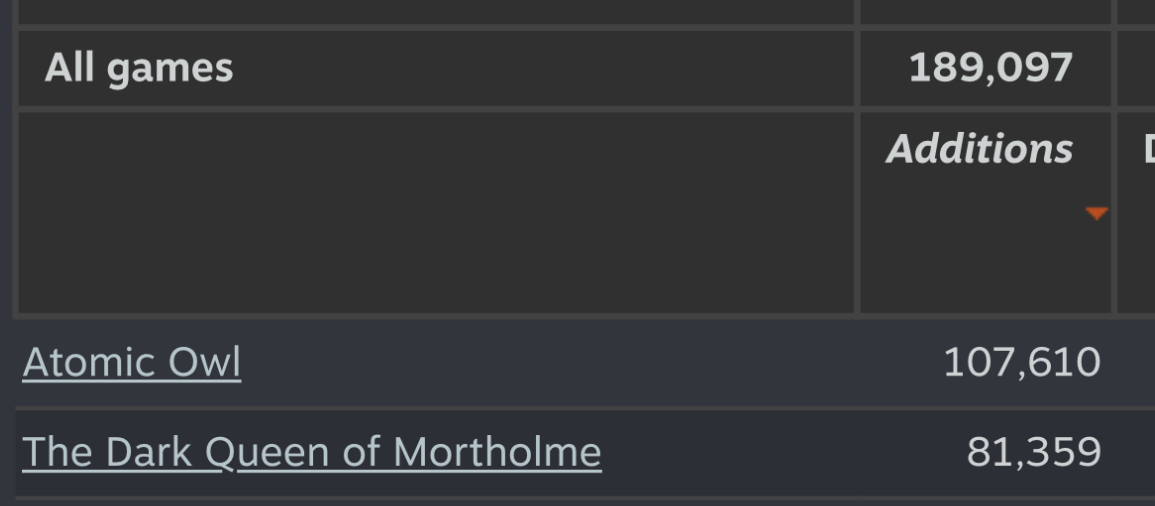
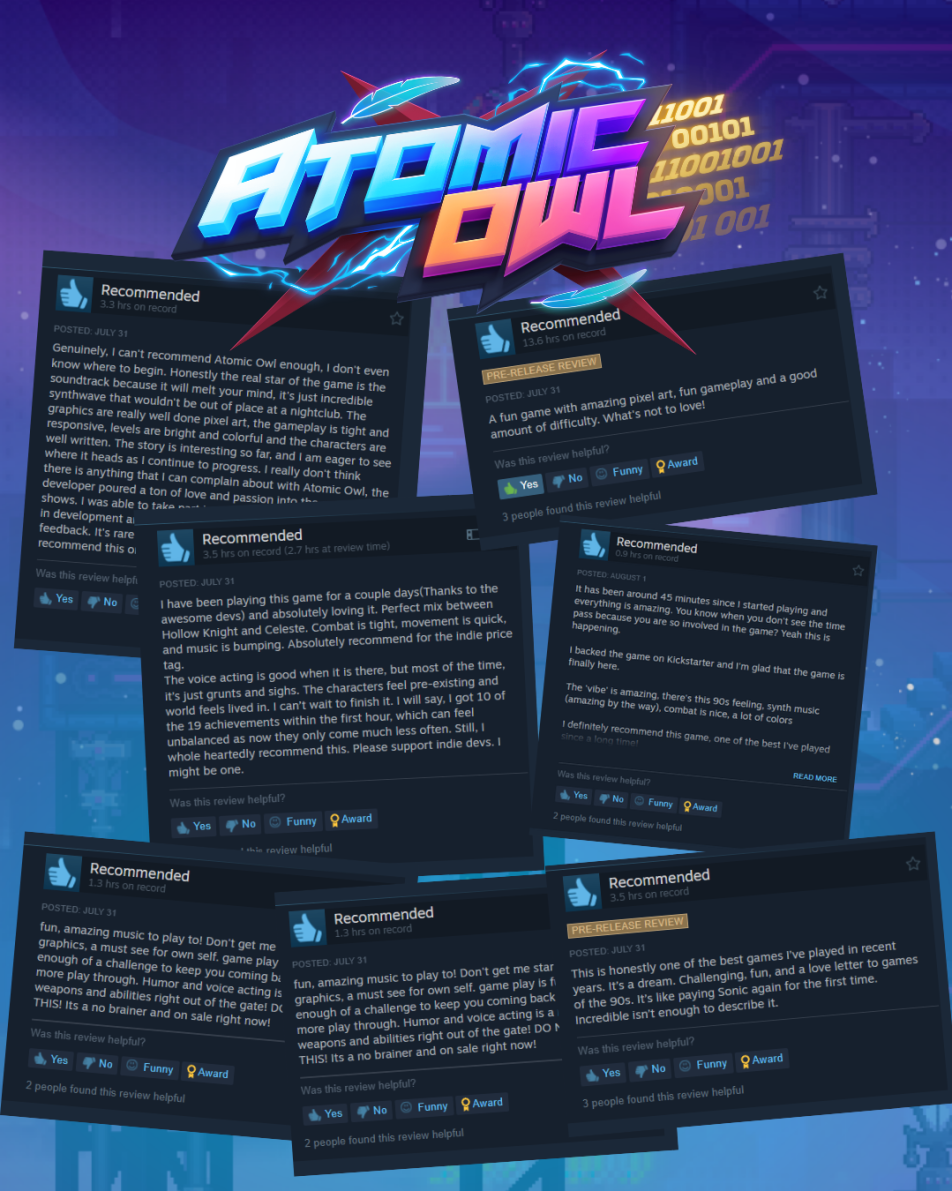
Third Billing
Hey neat, I’m third billing in the opening credits! That says a lot to come on board in the last 1/3rd of the project and get such an honored position in the opening credits. Thank you so much to Monster Theater for such rewarding work!
